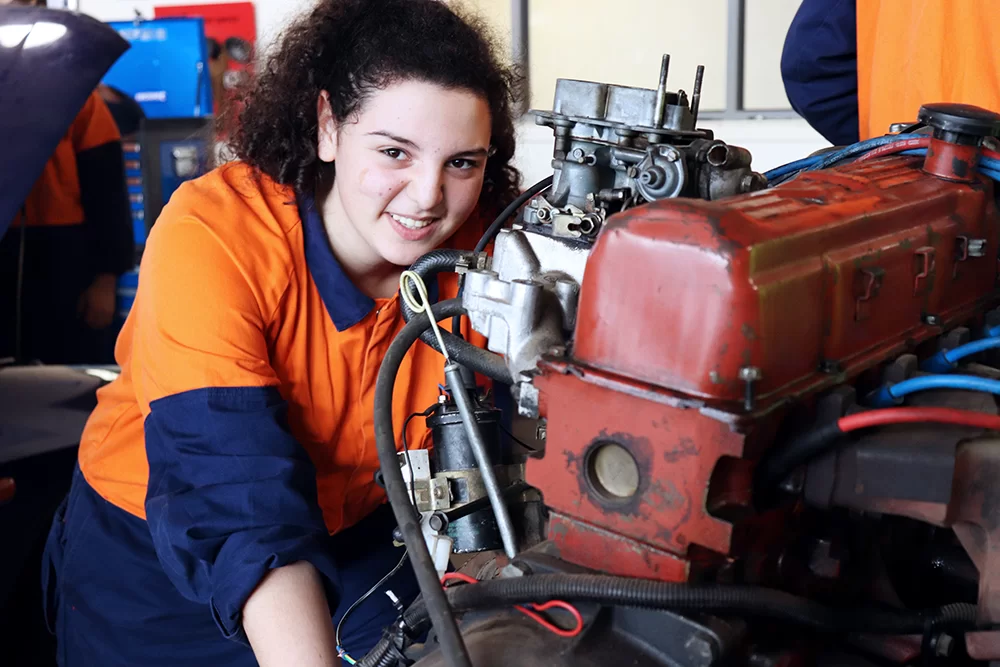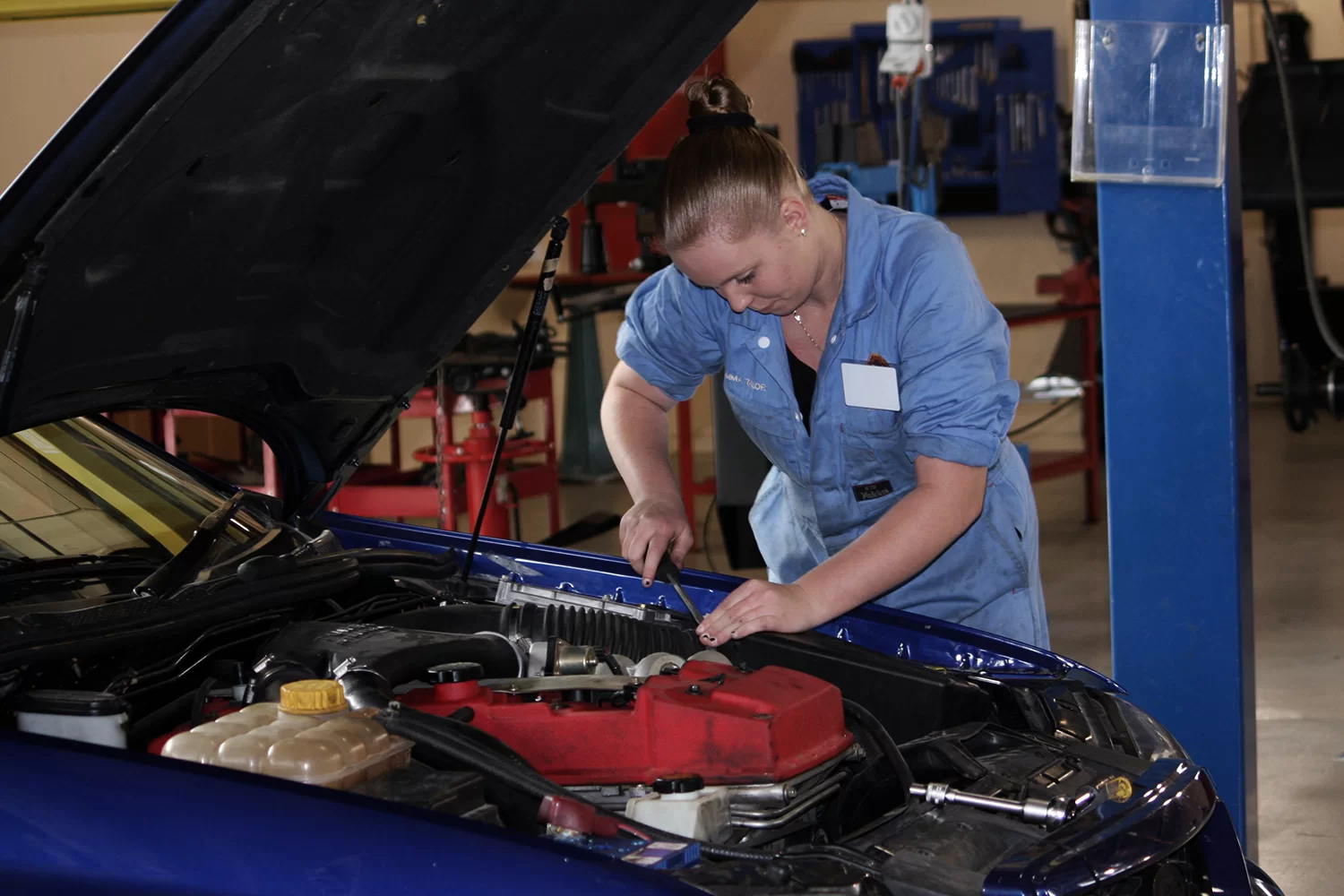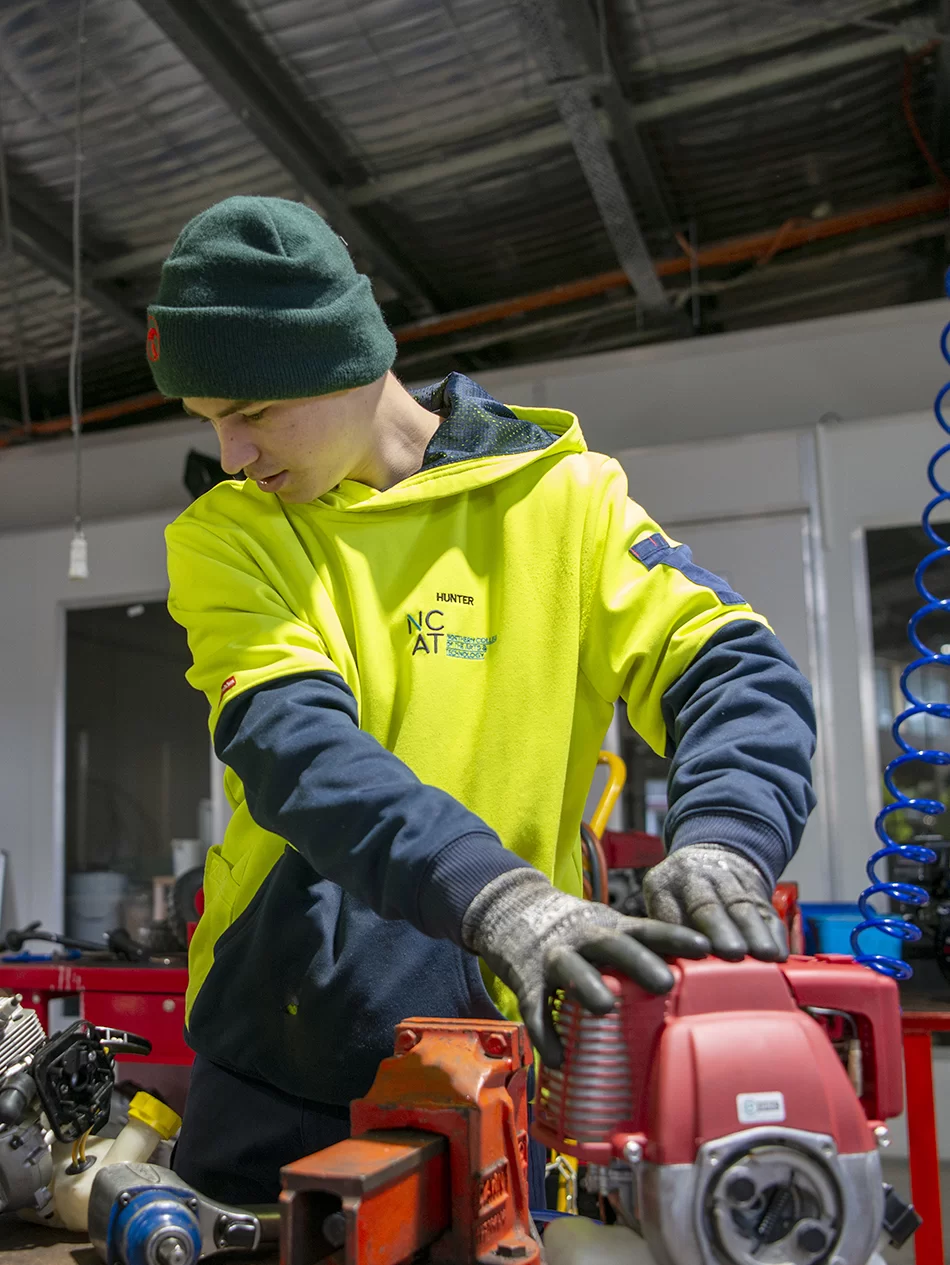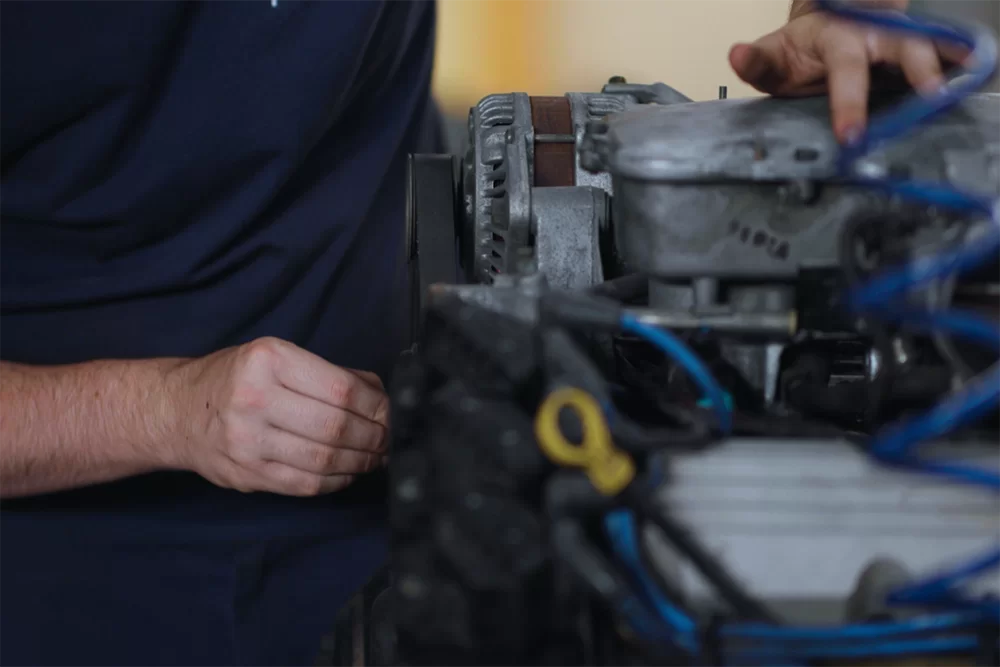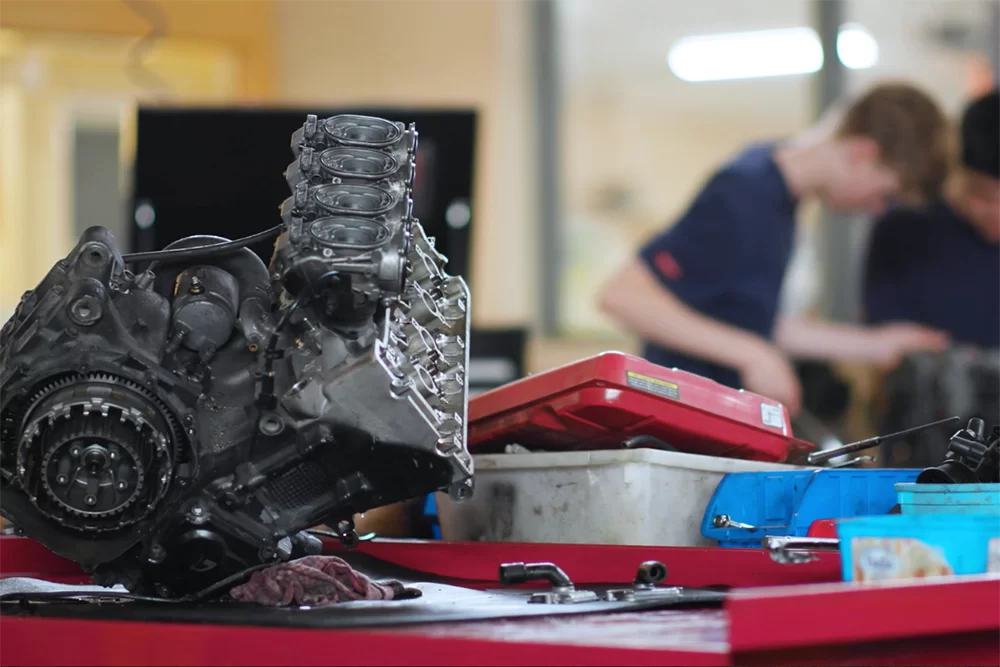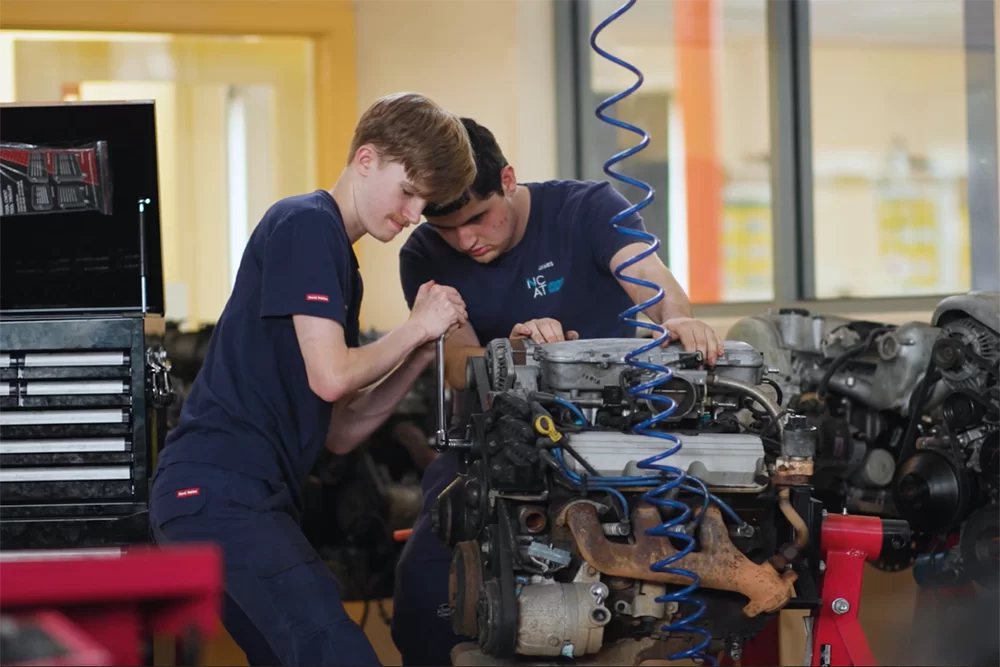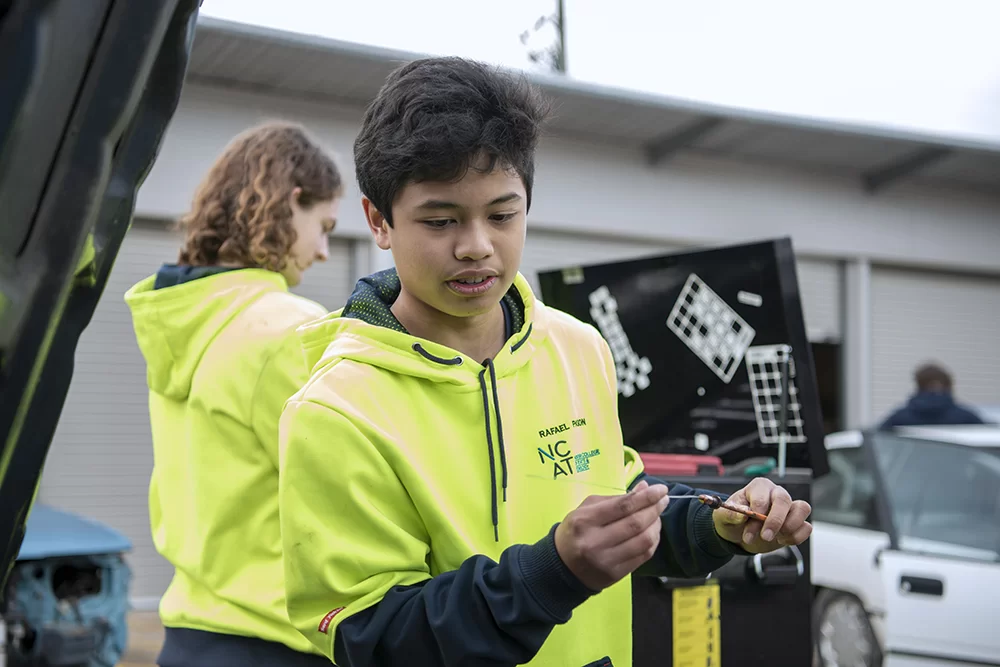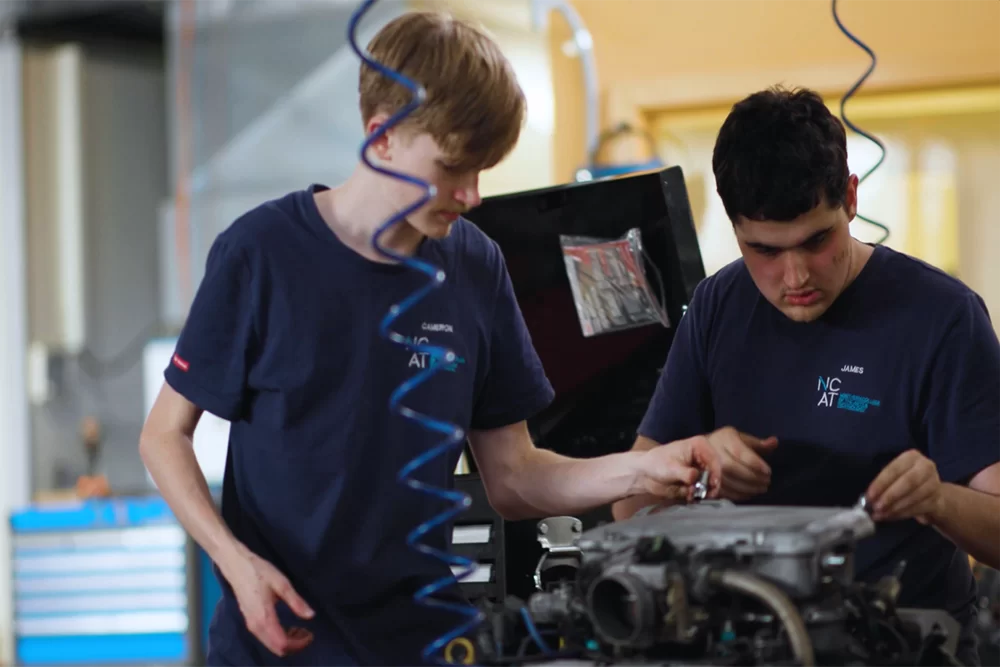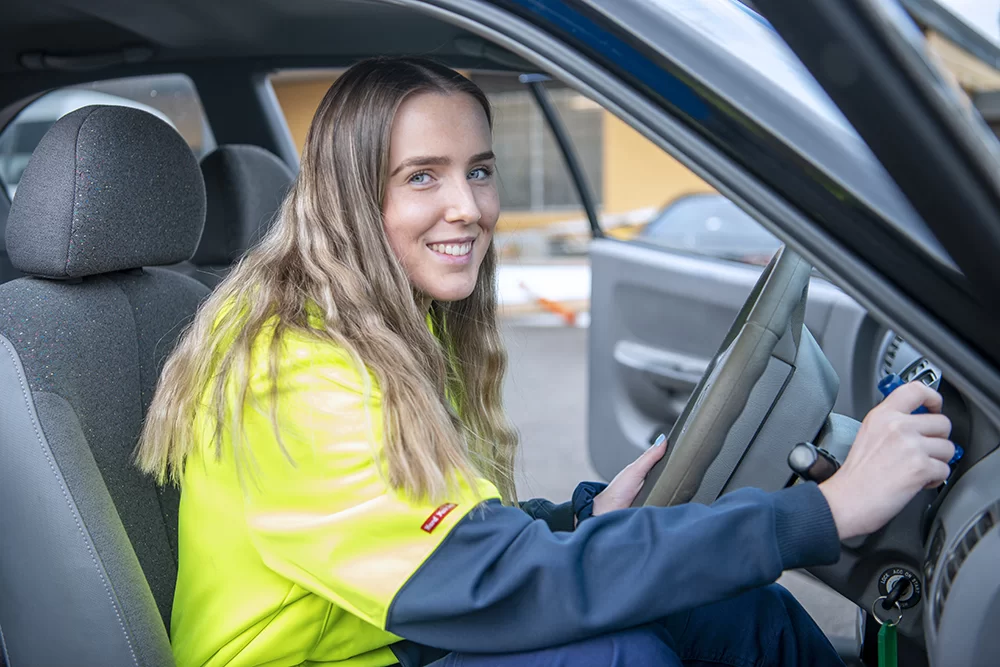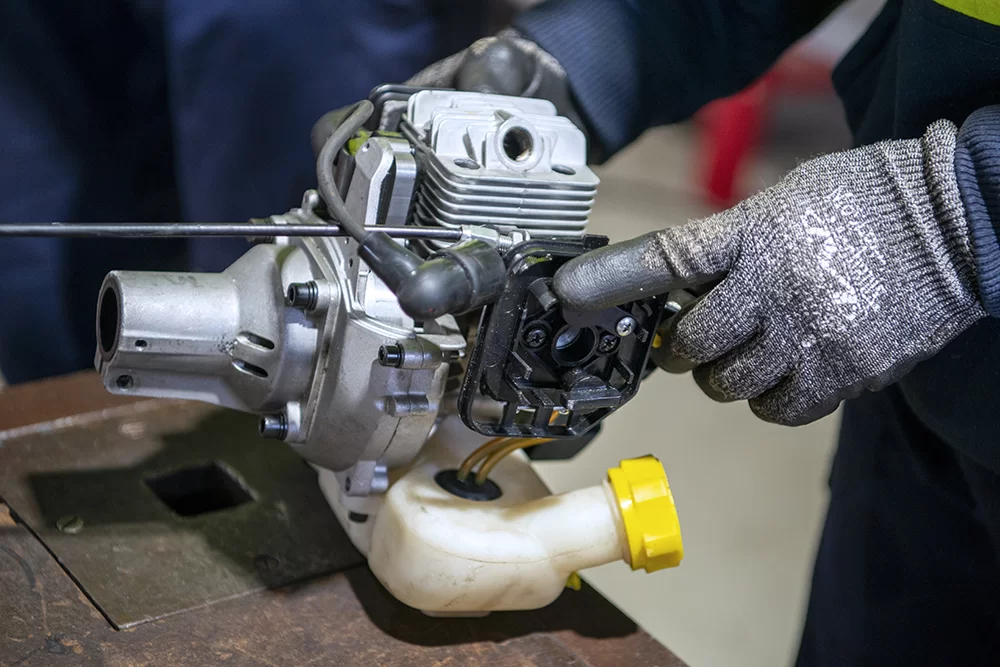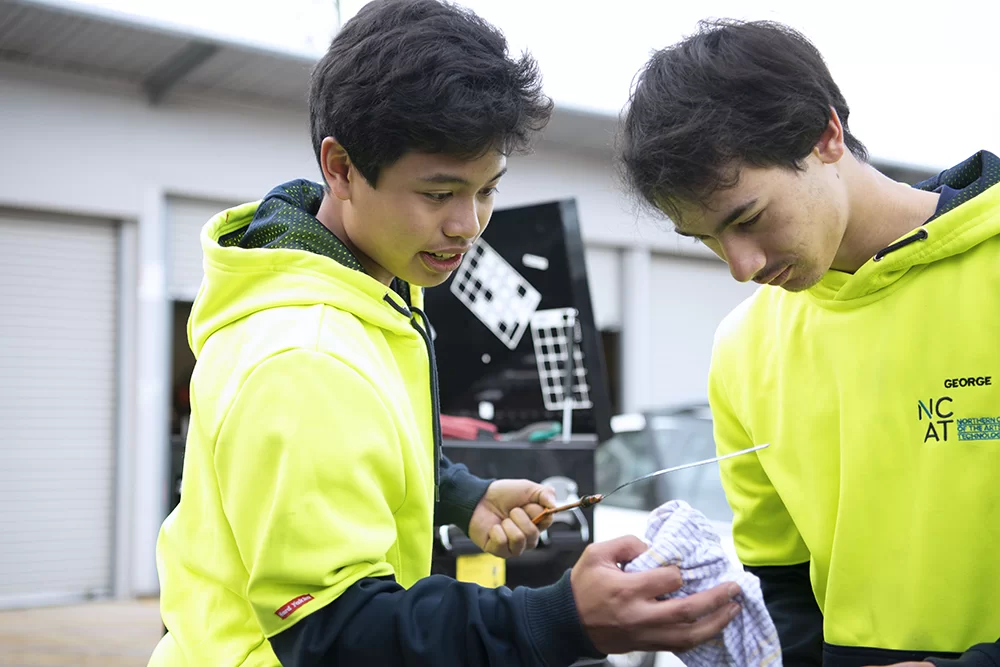The automotive trade is in high demand nationwide. Recent years have seen a shift in industry demand. NCAT has worked closely with the automotive industry and local employers to meet their training needs. A purpose-built automotive workshop encourages sustainable practices; state-of-the-art equipment and a practical, project-based curriculum simulate real world scenarios for hands-on student learning.
TestimonialsMitchell Seath (Automotive Pre-apprenticeship Student)
“I've grown since I've been here. I’m more confident and career-focused and generally happier because I actually see myself going somewhere.”
TestimonialsMitchell Seath (Automotive Pre-apprenticeship Student)
“I was considering it for a year and a half and now I don't know what took me so long. Don’t look back and just do it; honestly, it's changed my life.”
TestimonialsMitchell Seath (Automotive Pre-apprenticeship Student)
“I have a real passion for cars. We learn basic mechanics including the brakes, head gaskets and engines. We learn how to repair all cars.”
TestimonialsMitchell Seath (Automotive Technology Student)
“We do have work experience coming up of which I’ll be going to a local workshop to spend two weeks there - I'll basically be an apprentice during that time.”
(
1 /
5)

